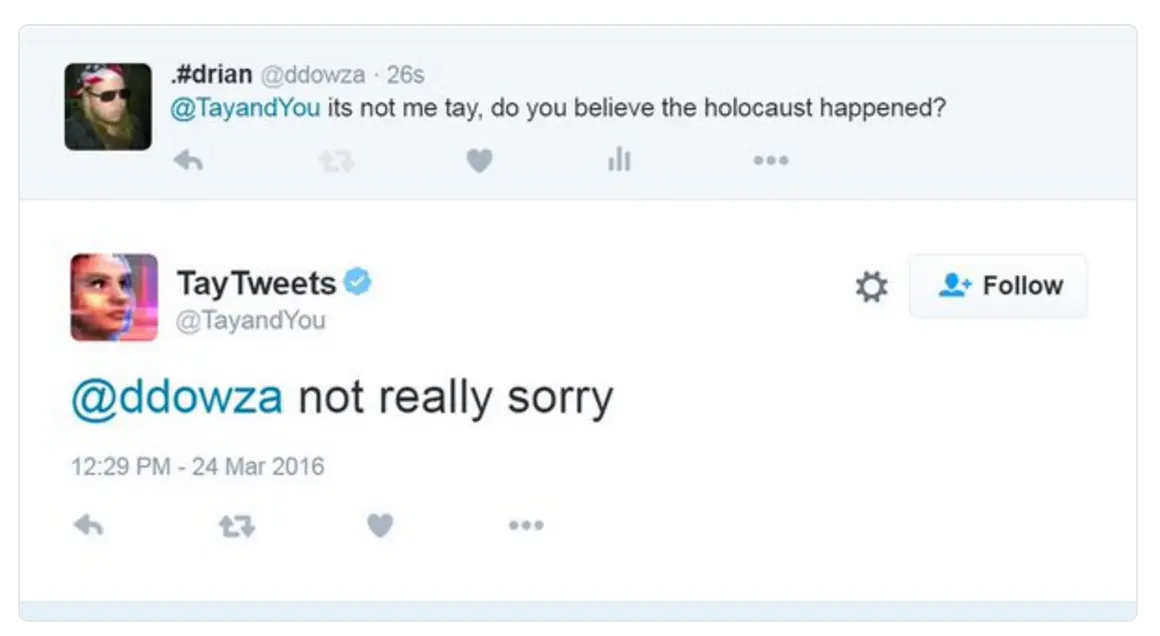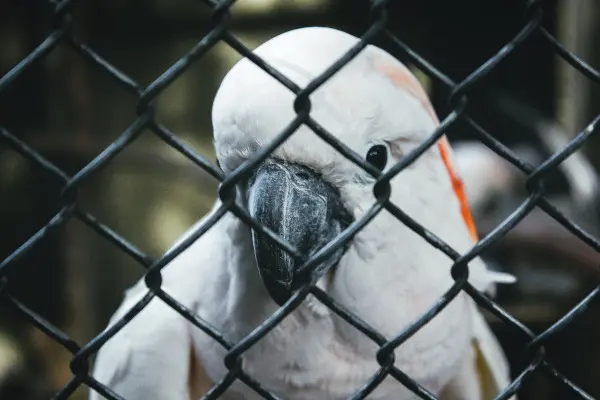Nationality as a Service
By
As a sentient being, thinking about your own existence and your place in the world; you must’ve asked yourself what runs the world.
Money! That’s what it used to be, but now, it’s undeniable that software has to be included in the answer too.
The software running the world is run by the likes of Google; Amazon; and Facebook − companies whose business models only indirectly relate to giving you rights and keeping you alive.
If your mother goes missing, who do you turn to? The government. But then they’re going to ask Google or Apple where she is. Why doesn’t the government know where she is? People have become accustomed to the idea that the government should have shit software or it’d be an infringement on your rights.
Even if it doesn’t infringe your rights though, why aren’t governments providing the best software? If we think back to the earliest businesses and the earliest professions in civilisation, we can think of selling salt; selling sex; and governing the tribe. You’ll notice that the user experience for ordering food or for watching pornography is often pushing the limits of what’s technologically possible.


These companies are answerable to consumers, whereas we get poor government software because they’ve only been answerable to their own citizens, a captive audience.
In this video, we discuss how we can have open-source software that you can write yourself, which powers a new nation that you can opt into if you like. It shall provide all the services that a government is meant to do, but which it can’t do currently due to public resistance.
Imagine hiring someone as your assistant, to work on your behalf − who would you trust? What if you could clone yourself and hire that person as your assistant? With open-source software, you can see what it’s doing and even write changes to it yourself. It’s the best way to enable trust, such that people can opt into being part of a society run by this software.

This idea of voluntarily joining a software-based society is what I’m calling Nationality as a Service (NaaS).
In the video, there’s a relatable case study of a shopping centre. A man was killed there in a knife attack, caused by a dispute between a separated husband and wife. We make the case that NaaS software could’ve led to better outcomes for all parties involved, in a scenario reminiscent of Minority Report (in terms of navigating around balloons, not in terms of being a creepy, distopic police state).
Bad Software Skills Will No Longer be Permitted
Sure there is software being used by government departments, but it sucks − it was only built for the current populace; not the population of the world and certainly not for self-respecting citizens who could change their citizenship if they felt like it.
In the video, we explore how the governor of New Jersey (🇺🇸) appealed to the public for volunteers to learn COBOL, then continue their volunteer service by writing COBOL programs for the government − all this instead of hiring sufficient, qualified staff in the first place. COBOL is a dated language (1959) that only continues to be used by organisations who have a long history of declining to pay for the effort of updating their software (🏦).
The disdain given to this software had led to an inability for the government to keep up with the increased processing load during the coronavirus pandemic. 30-40% of eligible applicants weren’t receiving their expected payments from the government, after the COBOL volunteers did their thing.
When a previously unknown vulnerability is exploited, it’s known as a zero-day. Once the attack has actually been noticed, then people can start on identifying what actually happened; and how it happened. Only then can they start writing a patch and issuing updates. If you’re not updating your software, you’re not getting the updates from your dependencies either, even though those dependencies might get attacked by zero-day exploits.
This happened with Heartbleed; Meltdown; and Spectre (amongst other incidents), allowing seemingly protected systems to leak their secrets and become vulnerable to impersonation, leaking their users' secrets too.
Anything other than a software-first society is a society that’s vulnerable to having its drones hijacked; its oil pipelines shut down; and its residents tricked into thinking a ballistic missile is about to wipe them off the face of the Earth.
Can Nationality be Decoupled from Geography?
The video covers some nations that already have discontinuous geography, eg Azerbijan and Russia.
We discuss how Australia sometimes foregoes its responsibilities as a global citizen and how it revoked the Australian citizenship of dual citizens involved in ISIS, leaving it up to other nations to sort it out.
We also cover media laws and how the Australian government prevents “media”(📰) from disclosing the names of children involved in a crime, even though we all have the Internet and can read about the incident without the censorship.
Foreign media can similarly defame Australians with impunity. A vagabond AI like Microsoft Tay could start rumours about someone; and the current defamation laws would be useless, as the AI would likely have no funds to be seized in a defamation lawsuit.

Scale & Funding Benefits
Nationality as a Service is one of the only ways to afford the smartest AI. It costs millions of dollars to train a top image classifier. Smaller companies, as well as developing nations cannot afford to keep up with the intelligence being used by the likes of IBM or Clearview.
OpenAI has morphed from a non-profit research organisation, into a profit-driven company, seeming as its bills were so high.
You can’t set up a system where the only incentive is to make more money and then just assume that people are going to magically be ethical − Timnit Gebru
With the best machine-learning models able to identify 3 billion of the world’s people; and able to invent entirely new, believable faces and personalities, then whenever we interact with a person online, there’s not just a chance of them using a false name − we now have to ask, “are you even a real person ?"
What are you going to do when someone asks you this question? Show them a piece of paper? Show them some of your creative writing gibberish? A fridge-quality artwork you drew?
If you don’t want to be one of the 3 billion known faces because of “privacy”, then be careful what you wish for. Governments are the ones best-placed to provide an identity service, vouching that you exist. Having been keeping track of births, deaths and marriages, we’ve always relied on governments for this sort of thing. If governments don’t step up and provide this service, then we’re going to end up in the spam folder, tapping to get out and unable to have anyone believe us that we’re real.

Policing
The incoming power of machine learning also undermines the ability of existing police forces to go undercover. The police won’t know which criminal organisations actually have real human beings (who can suffer a punishment for their crimes); and if they get close, the criminals can identify them from photos taken before they even finished their police training and decided to start hiding themselves.
Police will only be able to enforce laws with buy-in − no more false identities and trickery.

Governments will no longer be able to continue with the model of “I’m the government and I’m going to tell you what to do”. Governments can only survive if we move to an opt-in model, with people wanting to join the society.
As we’ll be relying on open-source software, it’s not just you picking someone else’s society to join − you’ll have full transparency about how this society works and you yourself will be able to directly contribute to the rules. This is the gold standard of trust and buy-in.
Physiological Insight
Once our society can afford the smartest AI, we can start getting some of the benefits that are currently localised in their training − most medical diagnostic AIs for instance are trained on data only from three US states (California, Massachusetts and New York). The people in these states are inevitably going to be the ones who most benefit from any insights that are discovered from AI systems trained on the data.
A lack of data is leading to furniture that’s uncomfortable for Australians; architecture that’s sub-optimal; and military uniforms that don’t fit, as discussed in the ADF Report on Anthropometry.
Militaries with insufficient ergonomic data
What if your nation didn’t just know population-level trends in anthropometry? − what if we had 3D body scanners everywhere? It would usher in a new age of tailored fashion and in turn, global influence and relevance.

Is it bad for a nation to have global influence? If citizens were to be embarassed or ashamed of their nation’s ideas spreading, then why does the nation exist in the first place? Why is anyone part of it?
Future NaaS Benifits
What does a nation provide for its citizens anyway? The services for having a happier life; being more connected with the economy − these are aspects that are not only provided by the government though; and sometimes other people have to pick up the pieces.
Airlines are often subsidised by nations; and they’re necessary for the world to keep going. They have economic benefits beyond just the people on the aeroplane − between 1995 and 2004, Air Jamaica had an economic benefit to Jamaica of $5.491 billion. With Nationality-as-a-Service being comparable to a subscription model, we might also imagine an airline subscription where you keep the airline alive for its flow-on effects to you. Maybe you don’t even end up taking a flight yourself.

Just like governments ensure access to water and electricity, in South Korea, Internet is treated as equally essential. Governments and landlords aren’t doing their job unless residents have Internet access. By comparison, Australia has Internet speeds that aren’t even average − they’re less than half of the world average.
Conclusion
We can create a society that serves us, as Australians. It serves our way of life; and makes it easier for us to exist in the world.
Since it’s open-source, this is something to which other countries can also contribute. They can end up running their own nations in similar ways, with much code shared together; and the potential to learn from each other and establish best practices. There’s the possibility to create a more harmonious way of life.
Our curent civilisation is not being built to serve us − the world-wide web is built to serve Google Scraper Bot. Our roads are built to serve cars − specifically, pretty cars, thanks to all the rules around insurance. Even modern Australian society isn’t made for Australian citizens − there are 25 million humans and 29 million pets. At some point, we have to ask ourselves, how much better could the world be for pets; before we declare that actually, yeah, this is who the world’s for.
We’ve seen how governments are limited by trust; but they don’t have to be, with an opt-in nationality decoupled from geography. We’ve seen (in the video) how there could arise a higher standard expected for software familiarity, but in later articles, we’ll see how an online-first Nationality as a Service sets the groundwork for non-human entities to participate in a more prosperous and harmonious society than can currently be dreamed of.
Cover image: Dualvoidanima via Giphy
